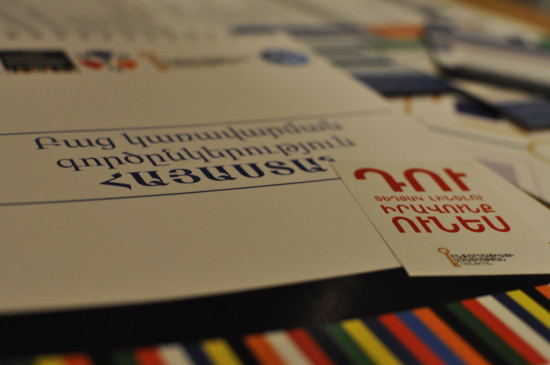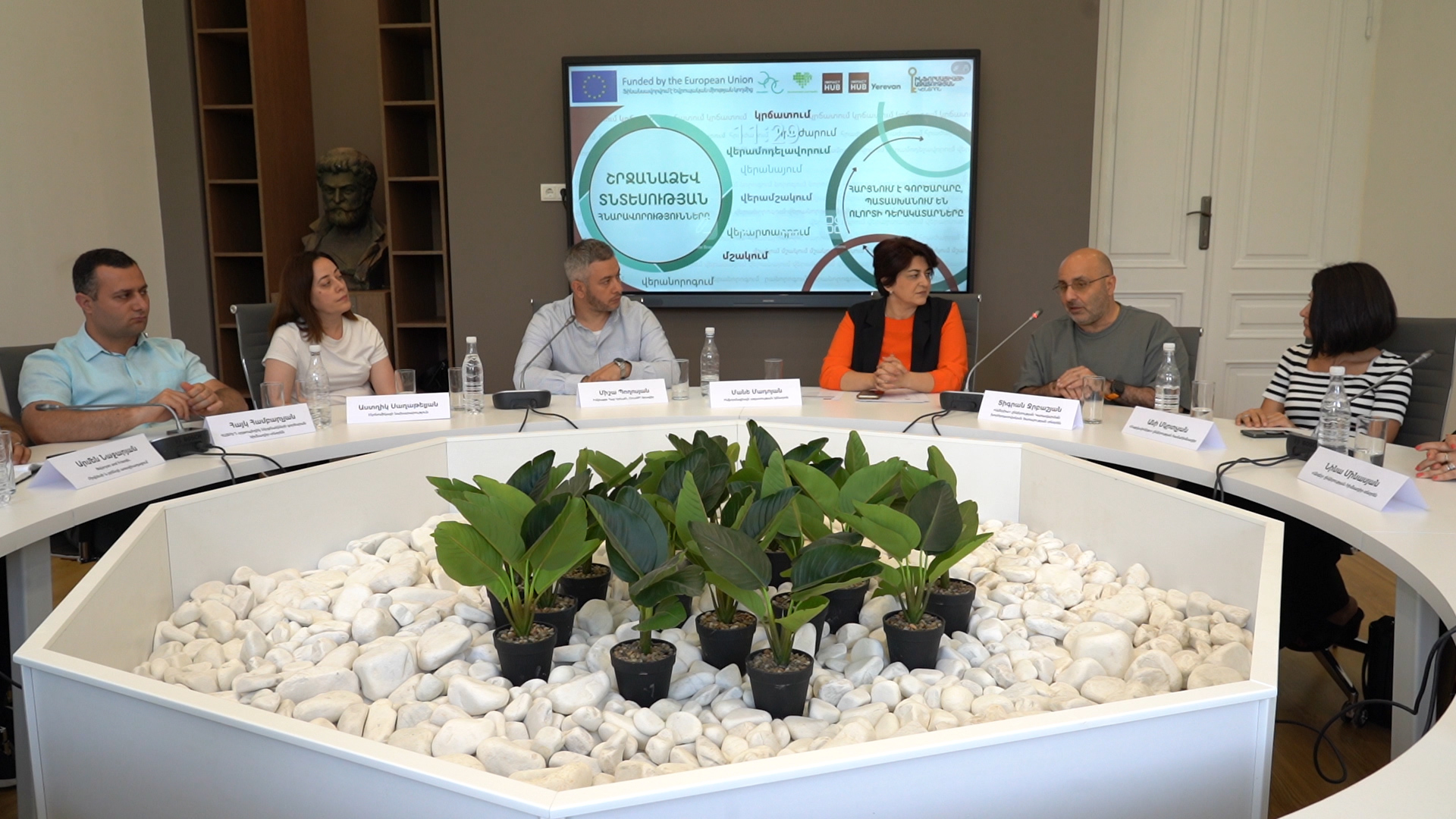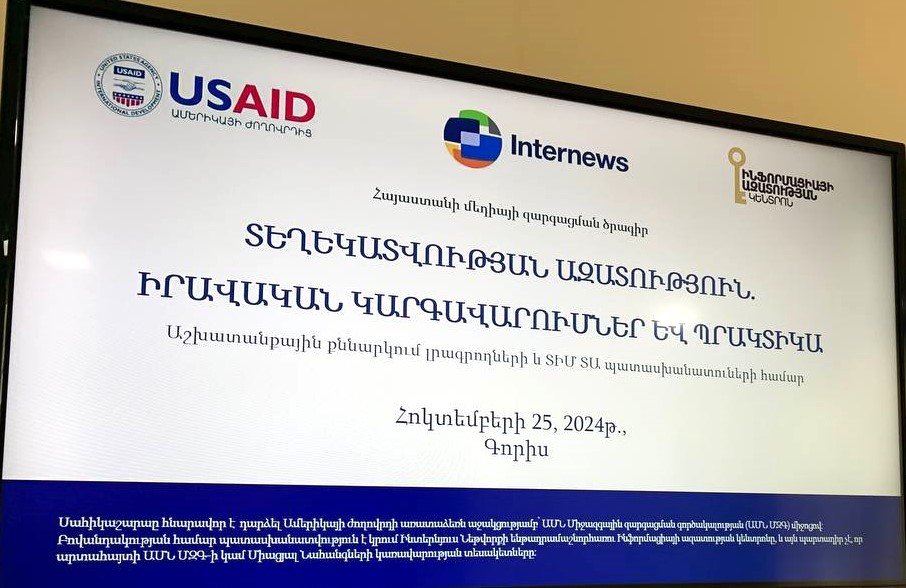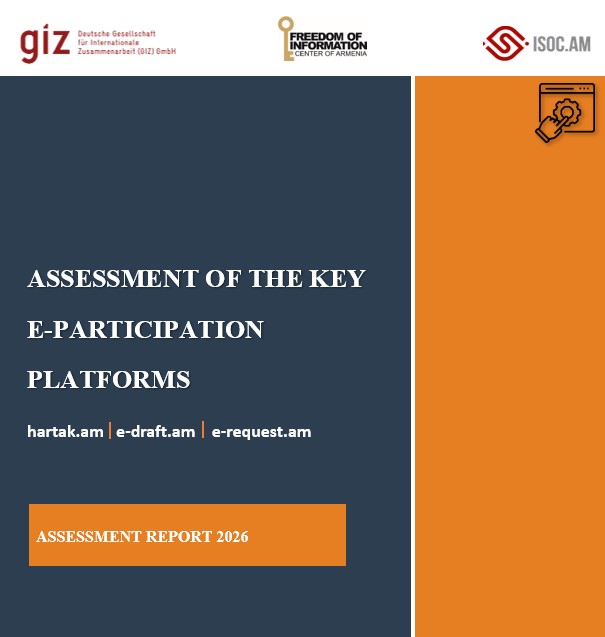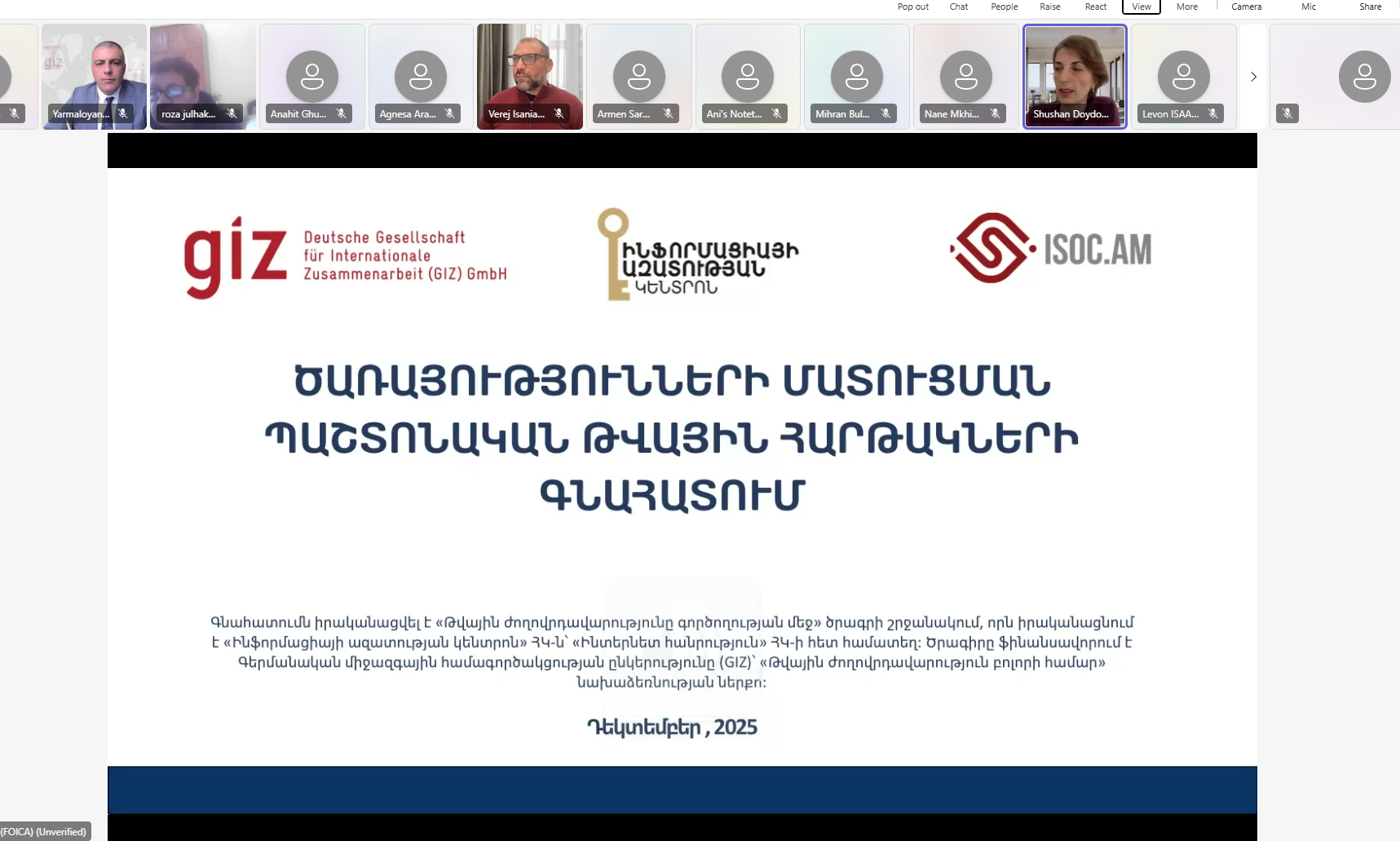On April 20, the Freedom of Information Center organized a training for 2 dozen journalists on Open Government Partnership.
The aim of the training was to raise the level of awareness of journalists about the OGP initiative and the resulting commitments, to promote accurate, accessible coverage and dissemination of a number of project-related areas.
Shushan Doydoyan made a welcoming speech, in which she particularly noted that Armenia has undertaken numerous commitments within the framework of OGP, in the success of which the press plays a key role. OGP is also related to a number of important areas that may be of great interest to journalists, those journalists who have particularly ambitious goals of freedom of information and raising public awareness. “The program encourages journalists to present to the public the problems existing in many spheres, the implemented and expected reforms, on the topics included in the OGP program,” said Ms. Sh. Doydoyan. The latter underlined that the experience of these years has shown that the allies in the implementation of the best programs have been made by the journalists at all times, so only due to them it is possible to inform the public, record and make visible global changes.
The FOICA President also informed that the participants within the framework of this training is planned to hold a competition to cover the best thematic materials related to the areas of the OGP program and issues. The journalists recognized as winners by the jury will receive a cash prize for the 1st, 2nd and 3rd places, respectively.
The speakers at the training were also Lilia Afrikyan, OGP Armenia Coordinator of the RA Prime Minister’s Office, Armenia Contact Person, Marina Mkhitaryan, OGP Eastern Partnership Regional Advisor, Freedom of Information Center NGO, Program Coordinator, OGP Working Group Member Liana Doydoyan.
Lilia Afrikyan presented to the participants the mechanisms of implementation of the OGP commitment, the Armenian processes, as well as in detail what culture the OGP has brought to Armenia, in particular, how it has strengthened the culture of state-citizen dialogue, how citizens are involved in participatory processes, etc. In the context of the topic, Ms. Afrikyan singled out the OGP commitment in other initiatives in the sectoral directions, emphasizing the work done for the real beneficiaries, for the transparency of the extractive branches.
Marina Mkhitaryan spoke about the international context of OGP, presented the peculiarities of the OGP program by the example of different countries, underlined the real changes of the initiative in other countries. M․ Mkhitaryan noted that this was not only a good opportunity to create existing “stable systems” in the case of the leading countries of the OGP program, but also to have strong, networked connections not only for NGOs but also for governments.
“This year is a very important year for Armenia, as the process has been silent for the last two years for objective reasons, but now the process has resumed, we are in the process of developing programs.
“So, if you now have ideas that can ensure transparency, accountability, participation, you can submit them,” Ms. Mkhitaryan added.
Within the framework of the training, FOICA Program Manager Liana Doydoyan briefed the current and future journalists on the role of the media in the OGP, the preparation of media content, and the clarification of the target audience.
The participants of the training had the opportunity not only to gain theoretical knowledge, but also to have professional training, in particular, on OGP commitments, coverage of processes. Who to apply to, what documents to study, what sources to use, what format to submit. The training was summed up with questions and answers.
The training is supported by the Open Government Partnership within the framework of the EU-funded “EU for Ethics for the Eastern Partnership” project.

